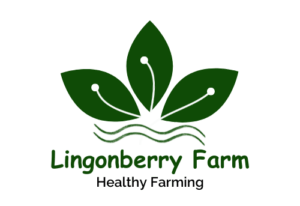Lingonberries are small, red, and packed with flavor and nutrients. These berries have been cherished for centuries, especially in northern regions of Europe and North America. Known for their tart taste, high antioxidant content, and health benefits, lingonberries are becoming increasingly popular. To meet growing demand, many farmers are establishing lingonberry farms, producing fresh berries and value-added products for local and international markets.
What Is a Lingonberry Farm?
A lingonberry farm is a specialized agricultural operation where lingonberries are planted, cultivated, and harvested. These plants thrive in acidic, well-drained soil and cooler climates. Unlike some crops, lingonberries are hardy and can survive poor soil conditions and cold winters, making them suitable for northern farming regions.
Lingonberry farming requires careful planning. Farmers must prepare the soil, ensure proper spacing for plant growth, and provide adequate water while preventing waterlogging. Mulch is often used to control weeds, retain moisture, and protect roots from temperature fluctuations.
Planting and Growing Lingonberries
Lingonberries are perennial plants, which means they grow back year after year. Their low, spreading branches and shallow roots make them easy to manage. The growing process includes several steps:
- Soil Preparation: The soil must be acidic, often adjusted with peat moss or organic matter.
- Planting: Seedlings or young plants are spaced carefully to allow for healthy growth.
- Watering: Lingonberries need regular water, especially during hot or dry periods.
- Weed and Pest Management: Natural methods like mulching and organic pest control are preferred.
- Harvesting: The berries are typically ready for harvest in late summer or early fall and can be picked by hand or gently shaken from the branches.
Once harvested, lingonberries can be sold fresh or processed into jams, juices, sauces, and dried products.
Health Benefits of Lingonberries
Lingonberries are highly nutritious. They are rich in antioxidants, vitamins, and minerals that support overall health. Some of the key benefits include:
- Antioxidant-Rich: Protects cells from damage caused by free radicals.
- Supports Heart Health: Can improve cholesterol levels and promote cardiovascular wellness.
- Urinary Health: Helps prevent urinary tract infections, similar to cranberries.
- Anti-Inflammatory Properties: Reduces inflammation and supports immune function.
Because of their health benefits, lingonberries are popular in both culinary and natural health products.
Uses of Lingonberries
Lingonberries are versatile in cooking. They are commonly used to make jams, jellies, sauces, and preserves. They can also be added to desserts, muffins, pancakes, smoothies, and savory dishes such as meat and game recipes.
Many lingonberry farms produce value-added products to maximize their yield:
- Lingonberry Jams and Preserves
- Juices and Syrups
- Dried Lingonberries
- Culinary Sauces and Condiments
These products allow consumers to enjoy lingonberries year-round and provide additional revenue streams for farmers.
Environmental and Economic Impact
Lingonberry farms contribute positively to both the environment and the economy. They require minimal pesticides and fertilizers and can grow in soils that are unsuitable for other crops. This helps preserve biodiversity and supports sustainable farming practices.
Economically, lingonberry farms create jobs, support local businesses, and provide fresh produce to markets. Many farms sell directly to consumers, enhancing the farm-to-table experience and promoting community-supported agriculture.
Visiting a Lingonberry Farm
Lingonberry farms often welcome visitors for tours and berry-picking experiences. Visitors can learn about cultivation techniques, see the growing process up close, and purchase fresh berries and products directly from the farm. These visits are educational, fun, and a great way to connect with nature and understand sustainable agriculture.
Conclusion
Lingonberry farms are a unique and valuable part of modern agriculture. They combine traditional knowledge with sustainable practices to produce healthy, delicious berries. From planting and harvesting to creating jams, juices, and dried products, lingonberry farms bring nature’s red treasures from the field to our tables.
Whether enjoyed fresh, preserved, or processed, lingonberries offer remarkable taste and health benefits. These farms not only provide nutritious food but also support local economies and promote environmentally friendly farming. For anyone interested in natural, sustainable, and flavorful produce, lingonberry farms are truly a hidden gem of agriculture.
